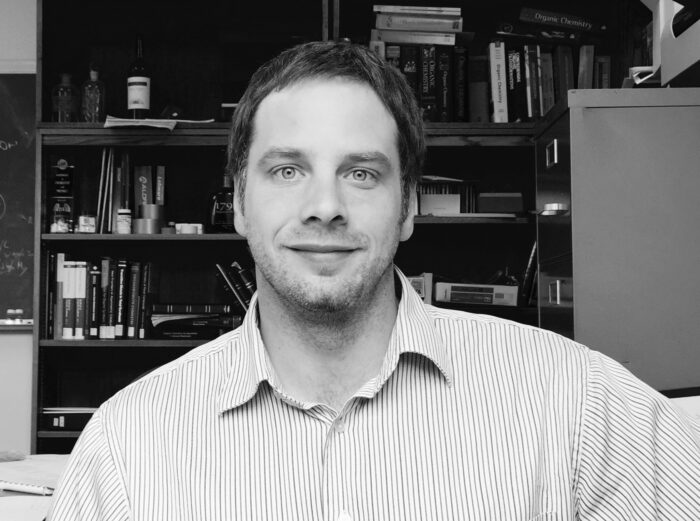Research
Inspiration for research in the Cook Group derives from the complex challenges presented by organic synthesis. Our group develops new reactions that enable the efficient synthesis of biologically relevant small molecules. These reaction manifolds provide novel modes of bond formation in an environmentally sustainable fashion. By examining known mechanistic data, we identify gaps in understanding that can be exploited to create entirely new reaction pathways. Further mechanistic refinement in our laboratory leads to a clearer understanding of these catalytic processes, which permits the design of new reactions in a rational and systematic fashion.
Recent

Silas Cook
Silas began his academic career at Reed College (Portland, OR) in 1995. After earning his B.A. in 1999, he took a position at the Genomics Institute of the Novartis Research Foundation (GNF) in San Diego, CA. There he worked to unravel various signal transduction pathways related to kinase and GTPase cell signaling. In 2001, Silas…
Read More →Catalysis for the Future
The search for novel reactivity will lead to new breakthroughs in catalysis. Catalysis research in the Cook Group is somewhat “metal agnostic” to enable the targeting of the most difficult of bond disconnections. Our work in palladium catalysis, for example, is focused on developing underutilized pathways for palladium to create new reactions and more sustainable carbon-carbon bond-forming transformations. Our work toward “green” catalysis has led to the development of transformations employing Mn, Fe, and Cu. Remarkably, these catalysts enable reactions that simply would not proceed using precious metals. The goal is to discover complementary reactivity to other well explored systems such as Ni, Pd, and Pt.
Previous
Interested in joining the Cook Lab?
View Positions